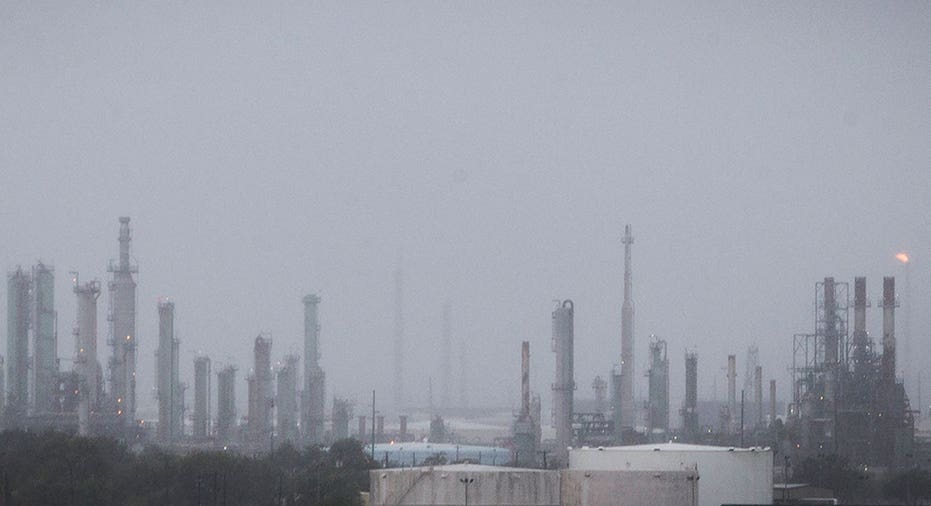Texas refineries begin restart after hit from storm Harvey

U.S. Gulf Coast refineries and fuel distribution terminals started to reopen on Saturday, a week after Tropical Storm Harvey knocked out nearly 25 percent of the nation's refining capacity and sent gasoline prices spiking.
While much of the region's refining infrastructure still remained offline from Harvey, which made landfall as a Category 4 hurricane last week, the restarts were a first step in alleviating concerns about U.S. fuel supplies.
Exxon Mobil Corp <XOM.N> said on Saturday it was restarting its 560,500 barrel per day (bpd) facility in Baytown, Texas, America's second-biggest oil refinery, after it was inundated by flooding.
Phillips 66 <PSX.N>, meanwhile, said it was preparing to resume operations at its storm-hit 247,000 bpd refinery in Beaumont, Texas.
The announcements come after Citgo Petroleum Corp [PDVSAC.UL] said on Friday it would restart its 157,500 bpd refinery in Corpus Christi, Texas.
Retail gasoline prices have risen more than 17.5 cents since Aug. 23, before the storm began, amid worries the storm would trigger supply shortages.
Pump prices were at $2.59 a gallon on Saturday, according to motorists advocacy group AAA, up 3 percent from Friday and 16.7 percent higher on average than a year ago.
In Latin America, the largest buyer of U.S. fuels, oil companies have been scouring the globe to find other supplies of gasoline and distillates to compensate for the U.S. Gulf Coast refinery outages.
POWER CUTS
In another positive sign for the oil industry, Occidental Petroleum Corp <OXY.N> said it had reopened its Ingleside, Texas, crude export facility, near where Hurricane Harvey first made landfall last week. The facility is a key export hub for Permian Basin oil producers.
The Port of Corpus Christi, a major energy industry shipping hub, was partially open and hoped to resume normal operations next week, officials said.
But much energy infrastructure remained off line, including the largest U.S. refinery, the 603,000 bpd facility in Port Arthur, Texas, owned by Motiva Enterprises LLC [MOTIV.UL]. Motiva has warned customers to prepare for fuel shortages, said a source at convenience store and gas station chain Circle K.
In some Texas cities, including Dallas, there were long lines at gas stations on Friday.
Nearly half of U.S. refining capacity is in the Gulf Coast region, an area with proximity to plentiful crude supplies from Texas oil fields and also Mexican and Venezuelan oil imports. Most major Texas ports remained closed to large vessels, limiting discharge of imported crude.
"The refineries were built on the Gulf Coast with the idea that we're going to import," said Sandy Fielden, director of oil and products research at Morningstar in Austin, Texas.
"That’s why we're having problems today because that's where they were all built."
The reduced availability of fuel forced the Colonial Pipeline, which provides fuel from refineries near the Gulf of Mexico to the U.S. Northeast, to reduce supplies.
But some crude oil pipelines had restarted. Magellan Midstream Partners <MMP.N> announced late Friday that it resumed operations on its BridgeTex and Longhorn crude oil systems. The two pipelines transport around 675,000 bpd of West Texas crude to East Houston.
The company said it expected to resume service on its Houston crude oil distribution system over the weekend.
As of Saturday, the volume of offshore U.S. Gulf of Mexico crude production still shut in had declined to about 106,000 bpd.
(Reporting by Marianna Parraga, Catherine Ngai and Ernest Scheyder in Houston, and Julia Simon in New York; Editing by Jeremy Gaunt and Steve Orlofsky)



















